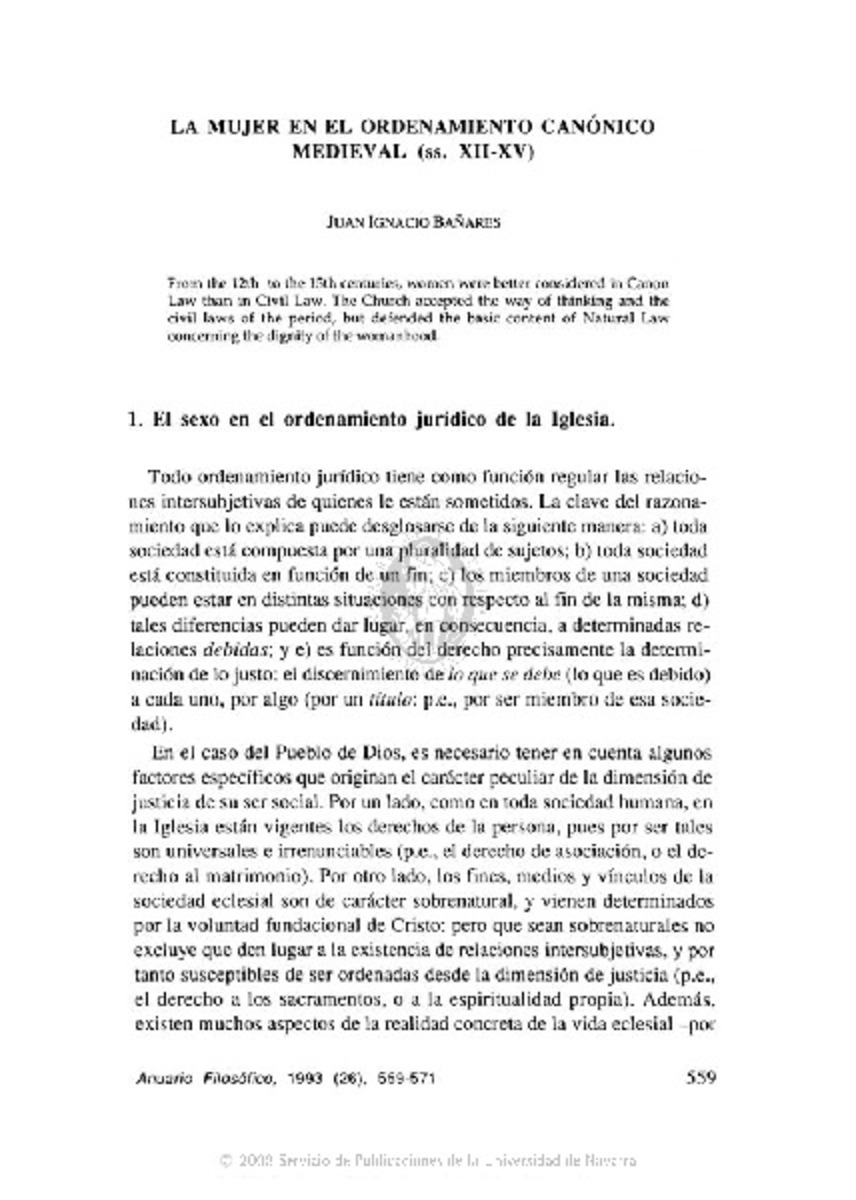Full metadata record
| DC Field | Value | Language |
|---|---|---|
| dc.creator | Bañares, J.I. (Juan Ignacio) | es_ES |
| dc.date.accessioned | 2005-05-03T15:39:14Z | es_ES |
| dc.date.accessioned | 2007-03-08T16:36:43Z | - |
| dc.date.available | 2005-05-03T15:39:14Z | es_ES |
| dc.date.available | 2007-03-08T16:36:43Z | - |
| dc.date.issued | 1993 | es_ES |
| dc.identifier.citation | Anuario Filosófico, 1993 (26), 559-571 | es_ES |
| dc.identifier.issn | 0066-5215 | es_ES |
| dc.identifier.uri | https://hdl.handle.net/10171/674 | - |
| dc.description.abstract | From the 12th to the 15th centuries, women were better considered in Canon Law than in Civil Law. The Church accepted the way of thinking and the civil laws of the period, but defended the basic content of Natural Law concerning the dignity of the womanhood. | es_ES |
| dc.format.extent | 45866 bytes | es_ES |
| dc.format.extent | 1892 bytes | - |
| dc.format.extent | 31606 bytes | - |
| dc.format.mimetype | application/msword | es_ES |
| dc.format.mimetype | text/plain | - |
| dc.format.mimetype | application/pdf | - |
| dc.language.iso | spa | es_ES |
| dc.rights | info:eu-repo/semantics/openAccess | es_ES |
| dc.title | La mujer en el ordenamiento canónico medieval (ss. XII-XV) | es_ES |
| dc.type | info:eu-repo/semantics/article | es_ES |
| dc.identifier.doi | 10.15581/009.26.29916 | es_ES |
Files in This Item:
Statistics and impact
Items in Dadun are protected by copyright, with all rights reserved, unless otherwise indicated.






